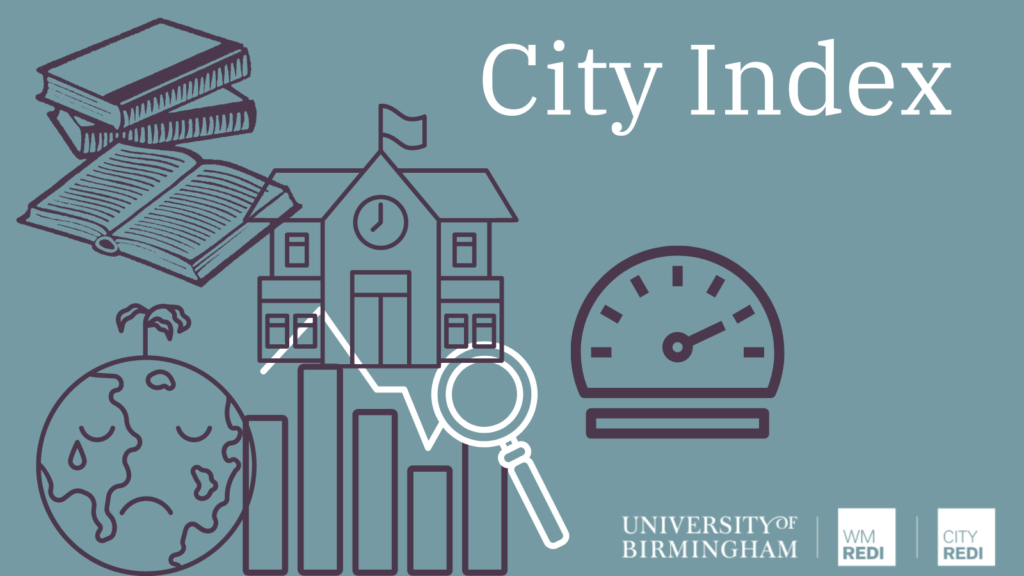
On 2nd September 2022, we launched the City Index, part of the new WMREDI Data Lab. The event featured a presentation by Josh Swan who led the development of the data dashboard, followed by a Q&A session.
The City Index is an interactive dashboard tool developed by our team that assesses 61 English cities on their ‘success’ as a city region. The index comprises ten different categories that measure all aspects of a city from Labour Markets, Infrastructure, Governance, and more. Our City Index has been designed for a wide range of factors to be considered for policymakers involved in different sectors and governance.
How do we define a city?
We define a city using different categories from the summary classification of the size of the place, to primary classification, secondary classification, percentage of the population in the summary classification, and the percentage of the population in the secondary classification.
When measuring the aspects of a city, we look at a variety of aspects from Health and Education to Inclusivity to Sustainability and the Environment.
Metrics
Moving on to look at the metrics, there are 10 dimensions and 54 metrics. Each City is scored in each metric. When combined with the other metrics in the Dimension, this gives a final City Index Score.

Missing Data
Putting together a dashboard means dealing with missing data in the datasets. Part of the process is to remove Geographies and Metrics in elimination rounds until you are left with no gaps or missing data that highlights a point.
Potential Policy Areas
In terms of potential policy areas, the following were discussed:
- Skills and Business environment analysis can reveal the health of markets in the local economy.
- Interventions from local Government and Public institutions such as Universities are key facilitators in delivering growth and strengthening the business environment.
- Cities without a University at present suffer in their rankings.
- Education is vital for sufficiently equipping the labour force with the skills businesses are looking for.
- Fostering innovation and inclusive economic growth is not a simple policy of spending more on education or improving businesses. It requires a multi-faceted approach taking into account many factors to push figures in the right direction.
- The link to Levelling Up with some geographical differences in the ‘success of a city’. In particular the emphasis on London.
- Rural Cities face many different challenges from larger urban areas in factors such as innovation and economic growth.
This blog was written by Ellie Macdonald, Digital Marketing Apprentice, City-REDI / WMREDI, University of Birmingham.
Disclaimer:
The views expressed in this analysis post are those of the authors and not necessarily those of City-REDI, WMREDI or the University of Birmingham.
